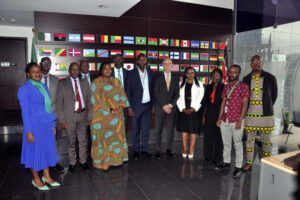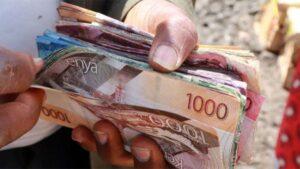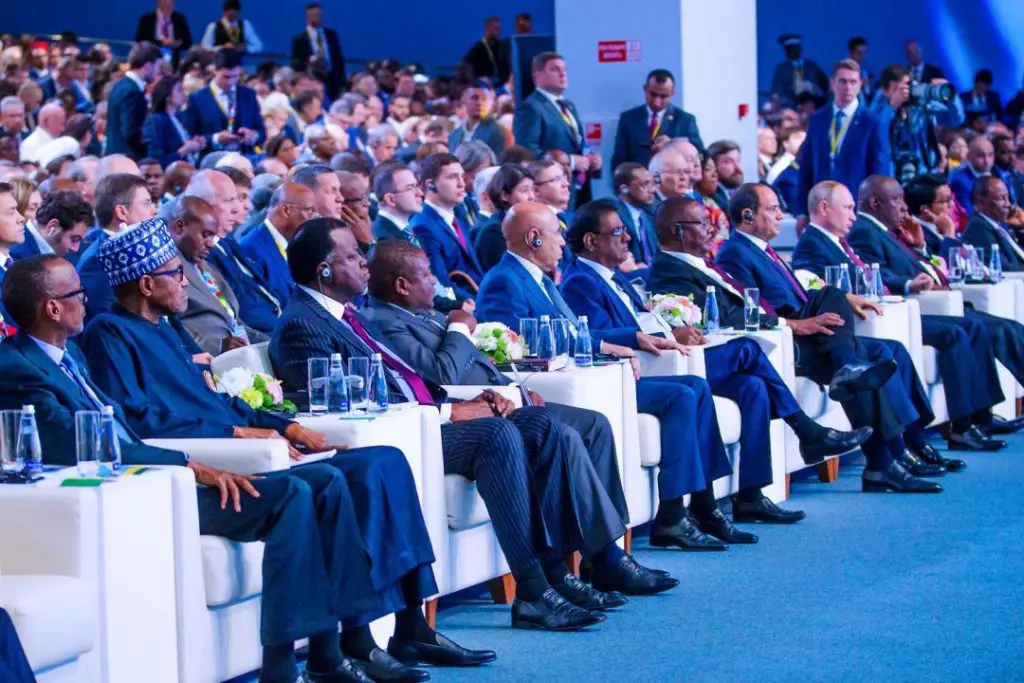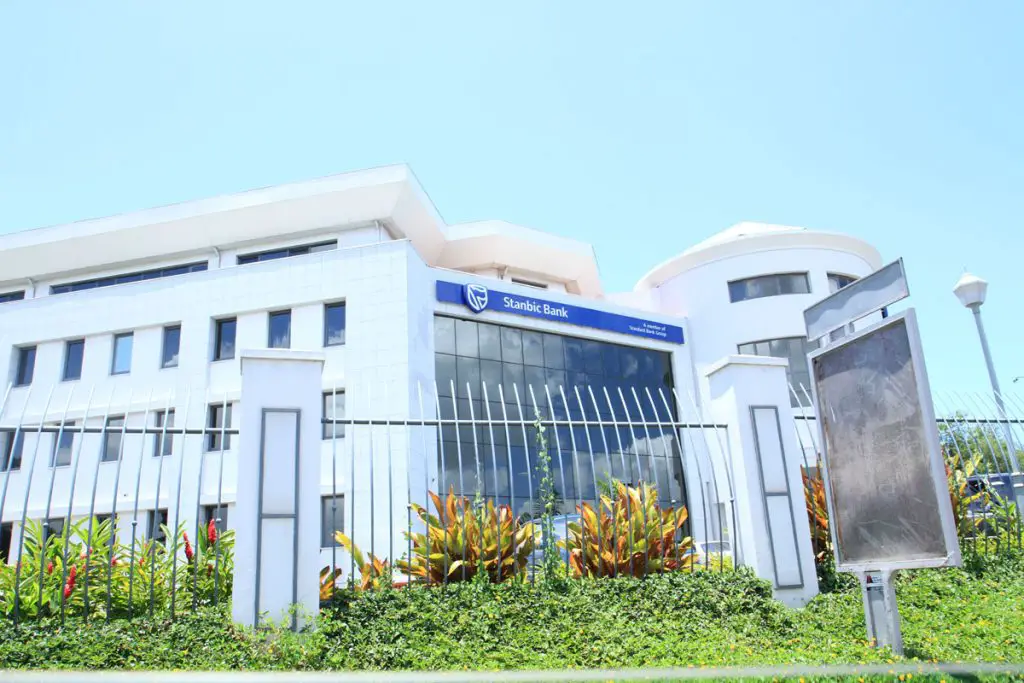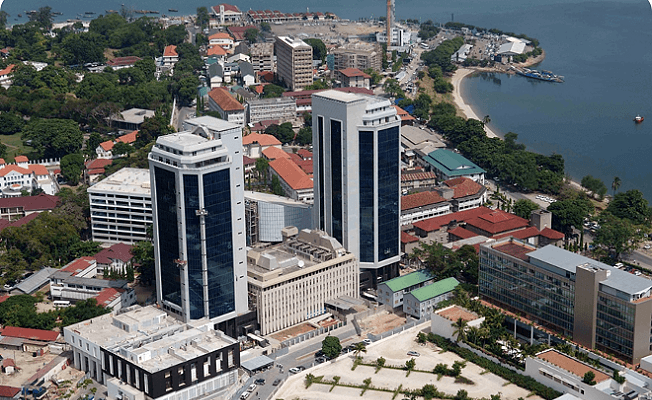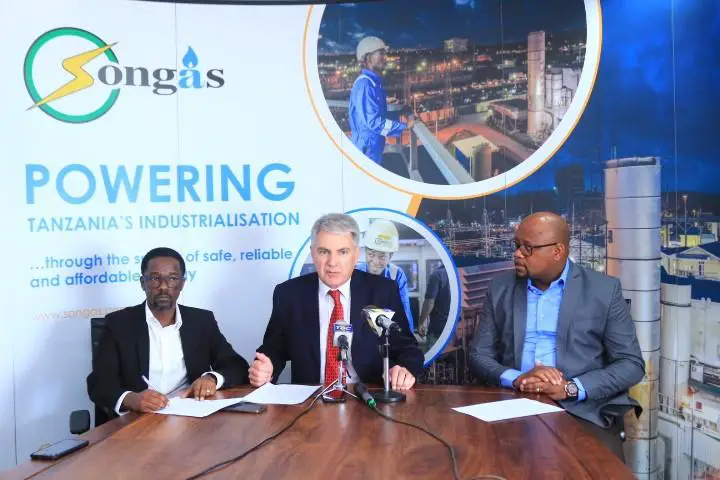- Kenyan Farmers Receive $2M Boost from Africa Fertiliser Financing Mechanism
- Brace for High Interest Rates for a Longer Period World Bank Warns Kenya
- Kenya-Ethiopia Trade Relations: Legislators Advocate for Policy Alignment to Boost Ties
- Visualising the state of debt in Africa 2024
- Abu Dhabi radiates optimism as over 300 startups join AIM Congress 2024
- TLcom Capital Raises $154 million in Funding to Boost Its African Growth
- Africa’s $824Bn debt, resource-backed opaque loans slowing growth — AfDB
- LB Investment brings $1.2 trillion portfolio display to AIM Congress spotlight
Author: The Exchange
- We provide economic news and analysis on the investment arena in Africa, with a particular interest in doing business. Our key areas of focus include banking, capital markets, energy, mining, manufacturing and industrial development.
More than 50 African leaders made their way to the Black Sea resort city of Sochi on Oct. 23-24 for the inaugural Russia-Africa summit.

The summit is widely seen as a reflection of Russia’s push for economic and military influence in Africa. More than 3,000 delegates from African countries and Russia are at the summit to discuss everything from nuclear energy to natural resources extraction.
All 55 African states sent a representative to the meeting, including 43 heads of state or government, according to Kremlin advisor Yuri Ushakov.
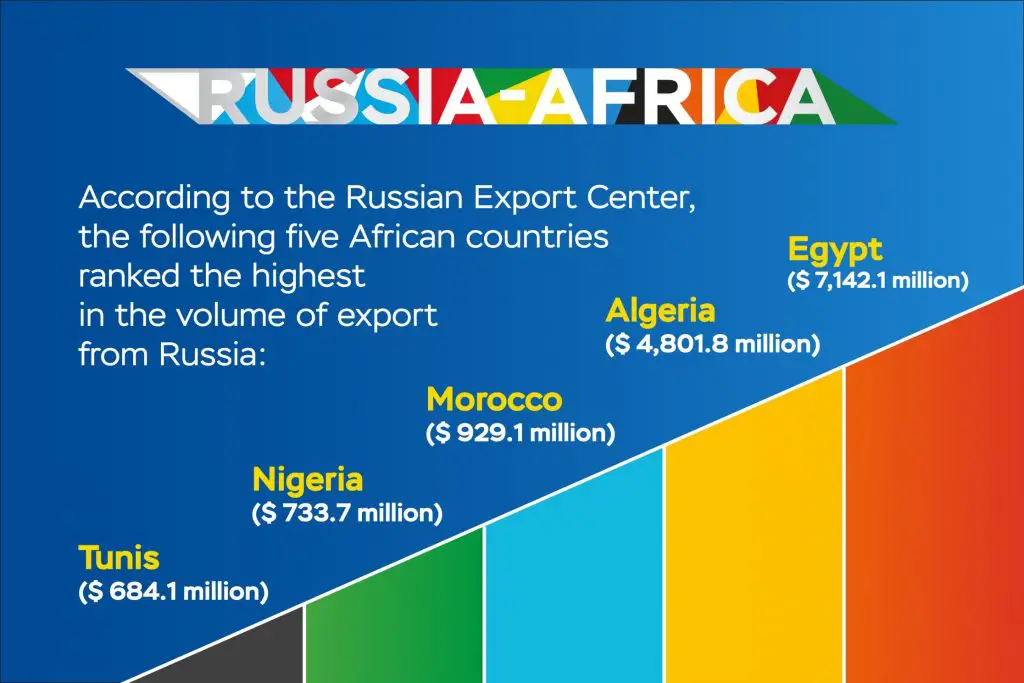
“We currently export to Africa $25 billion worth of food — which is more than we export in arms, at $15 billion. In the next four to five years I think we should be able to double this trade, at least,” Putin said.

Russian President Vladimir Putin met with his Egyptian counterpart Abdel-Fattah el-Sissi before the two leaders opened the first-ever Russia-Africa …
There is no denying that we are at a digital age where information can be accessed by anyone at any place thanks to the advancement of science and technology. We also see that most problems in society are also solved through technology. This has created an opportunity for young entrepreneurs to innovate and come up with different solutions to solve these problems.
In Africa there has been a rise of millennial startups that are digitally-based commonly known as ‘apps’ that have been revolutionizing how we solve our daily challenges. From the inception of M-Pesa to food delivery apps, these all demonstrate that digital technology is the future.
So how can we nurture this industry?
“We have to invest seriously on education and technology. Awareness has to be created on the advantages that can be gained from this space and governments have to allocate necessary resources towards achieving this. For the …
Recently, there has been a widespread recognition towards agriculture as an engine of growth and poverty reduction in developing countries. Yet the sector keeps under performing in many parts of our continent and other developing countries.
Globally, women produce 50% of global food products and comprise, on average, 43% of the agricultural labour force in developing countries according to FAO statistics. In African countries, according to the UNDP, the economic and social discrimination against women actually costs Africa USD 105 billion a year or 6% of the continent’s annual Gross Domestic Product(GDP).
In Tanzania, agriculture is a principal source of income and livelihood for about 65% of the population contributing an estimated 30%to the GDP. There is a greater participation of women than men in the sector split 81% and 73% respectively -the number increases to 98% for women in rural areas.
Many of the world’s poorest countries rely on …
Stanbic Bank Tanzania has announced their support for the third Tanzania Oil and Gas Congress that will take place in Dar es Salaam between the 2nd and 3rd October, 2019 at the Julius Nyerere International Convention Center (JNICC).
“It’s an honour to participate and attend the congress as a panellist, Stanbic Bank is excited to be part of conversations that will further the oil and gas sector and the development of Tanzania’s economy”, said the bank’s Head of Oil and Gas, Mr. Elias Ngunangwa.”
Stanbic Bank Tanzania has vast knowledge, expertise and experience in advising and arranging capital for projects in the sector. “We believe that financial institutions have an important role in facilitating investment in sectors such as oil and gas to promote industrialization and economic growth. We are committed to being a key player in supporting the government and stakeholders to utilize the resource effectively,” he added.
Tanzania …
Tanzania’s Central bank, the Bank of Tanzania (BoT) has pledged 500m/- in soft loans to the country’s artisanal gold miners.
The loans will be extended via the 13-year-old artisanal miners’ empowerment scheme dubbed the Small and Medium Enterprises Credit Guarantee Scheme (SME-CGS).
Under the scheme, the artisanal miners are guaranteed working capital from commercial banks in their respective areas of operation. The way it works is that the central bank guarantees the commercial bank up to 50% of the loan amount that the miner applies for. On the other hand, the recipient is then responsible to cover the remaining 50%.
This scheme was passed into law by the Act of 2006 which stipulates that when the loan is passed then the responsible financial institutions pays one per cent of the guaranteed loans to the central banks.
To secure these soft loans requires a business plan complete with financial plans detailing …
Stanbic Bank Tanzania today reaffirmed its commitment to the development of Tanzania and announced that in 2019 it provided TZS 177 billion in funding to various infrastructure development projects in the country. Providing finance and financial expertise to the private and public sector in Tanzania is a key focus for the bank.
Stanbic Chief Executive Mr. Ken Cockerill said, “Stanbic Bank is well positioned to play an important role in supporting Tanzania’s second Five Year Development Plan, which seeks to encourage industrialization and promote economic growth and social development.”
Mr Cockerill also mentioned that, “Infrastructure development is the cornerstone for sustainable long-term economic growth and competitiveness. With that in mind we are proud to be at the forefront of bridging the infrastructure funding gap to accelerate socioeconomic transformation in Tanzania.”
Unlocking private sector funding will create solutions to bridge Tanzania’s and the continent’s infrastructure deficit and challenging business environment by …
Songas limited has paid the government TZS8.8 billion in dividends as a result of its shareholding in the Tanzanian gas-to-power company.
Songas is a strategic partner with the Government in meeting the growing demand for energy and includes ownership by Tanzanian sector entities, Tanzania Petroleum Development Corporation (TPDC), Tanzania Electric Supply Company Limited (TANESCO) and Tanzania Development Finance Company Limited (TDFL) as well as Globeleq, a leading independent power producer solely focused in Africa.
Songas Chief Financial Officer, Anael Samuel said TANESCO will receive about TZS2.2billion while TPDC will receive an estimated TZS6.6billion, both amounts will be subjected to withholding tax. The amounts are determined by each entity’s shareholding in Songas.
Additionally, the government also benefits from its 32% shareholding in TDFL, which receives about TZS 1.8 billion in dividends and also through the Tanzanian Revenue Authority from the withholding tax on dividends.
Since 2012 the company has paid TZS121.6 …
To cement trade ties, boost investment flows and encourage tourism between Tanzania and China, Standard Bank and the Industrial Commercial Bank of China (ICBC) have launched the I Go Tanzania loyalty program in partnership with Tanzania Tourism Board.
This initiative, part of ICBC’s I Go Global rewards scheme for its card holders in China, was unveiled in Tanzania on 6th August 2019. It will capitalize on the growing appetite among Chinese travelers to visit Tanzania by offering a range of discounts and special offers from merchants across the travel, hospitality and lifestyle sectors, says Standard Bank’s group head of card and emerging payments across Africa in personal and business banking, Lincoln Mali.
“ICBC is the biggest bank in the world, with approximately 139 million credit cards and as many debit card customers,” says Mali, explaining the rationale behind the new loyalty program, which was designed by Standard Bank in partnership …
When Mr. Innocent Rwetabura strode into the interview room, he didn’t have the temperament that would be associated with someone of his stature – holding a top tier position at one of the leading Telecom companies in the country.
To the contrary, Rwetabura was unassumingly gentle. He patiently sat there, readying himself to be bombarded with questions.
Perhaps his extensive experience in the financial and telecom sector at some of the biggest companies in and outside of Tanzania elevated not only his skills as a finance expert, but his overall demeanor.
Rwetabura’s history speaks for itself. He moved to Tigo with vast experience having held various top positions at other companies, some trading in the Telco industry.
According to him, accounting has always been in his blood. Yes, dealing with numbers comes with the package, but his motivation has not always been remuneration and perks that come with the profession, …
By Giza Mdoe
Wide angle AI Triple Camera
You have not experienced the wonders of a smartphone until you experience the Phantom 9.We are not just talking of the usual fingerprint in-display sensors,motion sensing and screen rotating gyroscope, we are going the extra mile and introducing Artificial Intelligence Triple Cameras complete with auto sensors and a wide angle photography capability.
The AI Triple Camera (16MP+2MP+8MP) has one camera in the front for your amazing never to miss selfie moments and two cameras in the rear for even clearer, wider angle pictures.
“With the amazing AI triple camera plus other wonderful features, we are proud to say it was worth the wait. Photography enthusiasts and business professionals will find that is a great addition to their work and entertainment toolbox,” said Stephen HA, the Managing Director of TECNO Mobile.
He was speaking at the global launch of the …
